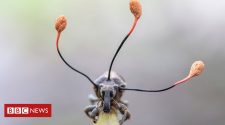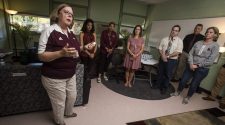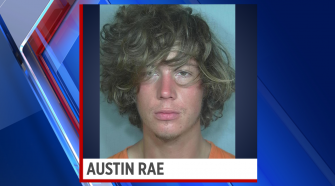The projection is based on an ensemble forecast of more than a dozen individual forecasts from outside institutions and researchers. The projections show a possible range of 115,400 to 134,800 deaths before the end of next month.
“This week’s national ensemble forecast indicates that the rate of increase in cumulative COVID-19 deaths is continuing to decline. Nevertheless, total COVID-19 deaths are likely to exceed 115,000 by June 20,” the CDC says on its website.
Meanwhile, as Americans continue reopening their businesses and returning to public spaces after lockdowns to stop the virus’s spread, the World Health Organization is still keeping an eye on hotspots in other parts of the world. Among them are Russia, Africa, the Americas, some countries in South Asia and a few countries in Europe, said Maria Van Kerkhove, technical lead for the WHO’s coronavirus response.
“These are areas that we are concerned about because, as we know, as you know, when this virus has an opportunity to really take hold it can grow very, very quickly,” Van Kerkhove said. “Any one of these could really take hold and take off very, very quickly and we have seen how this virus affects vulnerable populations, and that’s a big worry of ours.”
Behavior that can make a difference
With neither a vaccine nor treatment available for coronavirus, experts say the best defense against a resurgence is public behavior.
Socializing outdoors, maintaining distance from others and wearing face coverings have been highlighted as best practices for reducing coronavirus transmission.
Face masks worn at home can help to stop the spread of coronavirus among people who live together, according to a study published Thursday in BMJ Global Health. Researchers in China studied 124 families with at least one coronavirus patient.
The study found that opening windows, keeping more than about 3 feet apart and disinfecting shared surfaces also seemed to lower the risk of passing the virus on to family members, even in crowded homes.
If a person wore a face mask before they showed signs that they were sick, it was 79% effective at reducing transmission, according to the study.
The masks proved only to be effective in the home before a member of the household showed symptoms, the study said.
“A standard mask, the ones that we’ve been making, cut things down by 50%. I wear it to protect you, you wear it to protect me,” Bromage said.
Behavioral changes have already proven successful in bringing cases down in China, New Zealand and Australia, said Dr. William Haseltine, president of the think tank ACCESS Health International.
Tools in the fight called into question
The long-emphasized precautions continue to be crucial to reducing transmission, health experts say, but measurements the US has relied upon from the start of the pandemic are now being called into question.
The evidence shows that aerosols can accumulate and remain infectious indoors for hours, so particles still in the air could be easily inhaled into the lungs — even if people are standing six feet apart, according to the commentary published in the journal Science.
Meantime, coronavirus and antibody tests — used to assess the virus’ spread in communities — both have shown limitations this week.
Many people admitted to the hospital with severe illness need multiple coronavirus tests, often advancing to tests from deeper in the respiratory system, before the test comes back positive.
Coronavirus antibody tests may be wrong half the time, the US Centers for Disease Control and Prevention said in new guidance posted on its website this week. Antibody testing looks for evidence of immune response to determine if a person had been infected.
The tests are not accurate enough to make policy decisions, the CDC said.
The state of coronavirus
States have been taking varied approaches to reopening and also contending with different rates of infection.
Fifteen states are still seeing upward trends in coronavirus cases, with 10 remaining steady and 25 on the decline.
California reported its largest single day increase in confirmed cases Thursday since the pandemic began. Georgia also saw a spike in cases this week, but Gov. Brian Kemp attributed the growth to a recently submitted backlog of test results.
“I can assure you that (Georgia Department of Public Health Commissioner Dr. Kathleen Toomey) and I and our whole teams continue to watch that data,” Kemp said.
Elsewhere, attractions geared toward drawing large crowds are making their way back into the US.
Tennessee Gov. Bill Lee announced Thursday that live sports will return to the state this weekend at the Bristol Motor Speedway, though no fans will be in attendance.
“We’re welcoming visitors back, but we’re going to take every precaution possible,” Nevada Gov. Steve Sisolak said in an online briefing. “We’re encouraging visitors to come and enjoy themselves and have a good time.”
CNN’s Nicole Chavez, Holly Yan, Faith Karimi, Jen Christensen, Cheri Mossburg and Maggie Fox contributed to this report.






















